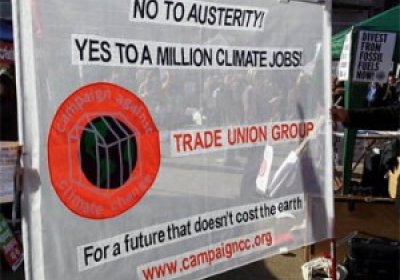My name is Stephanie O’Donnell, but I also go by “the girl from the plane”.
On December 19, my partner and I were at Sydney Airport on our way to Heathrow via Beijing. We had booked the cheapest flight available and were waiting to check in for flight CA174, when a plucky activist approached us.
Democracy
Protests against the forced closure of Aboriginal communities in Western Australia were held across Australia on March 19.
US bars UN torture investigator from jails and Guantanamo
The United Nations special investigator on the use of torture criticised the US on March 11 for stalling for over two years in granting the international human rights body access to inmates at Guantanamo Bay and other federal US prisons.
Experience proves that left-wing movements can win government, but nevertheless not hold power. Democracy, in other words the exercise of power by the people and for the people, requires much more.
The problem is now being faced in Greece with with radical left party SYRIZA, which won elections in January. It will have to be faced in Spain if the new anti-austerity party Podemos wins November elections.
The following statement was released by Aid/Watch, an independent monitor of international aid and trade, on March 5.
* * *
Australia spends $577 million a year on aid for Papua New Guinea (PNG). Two key focus areas are anti-corruption related — law and justice, and governance.
PNG has concurrently undertaken a number of national processes to combat corruption without Australian support.
US hemispheric policy reached a new low on March 9 when President Barack Obama invoked emergency powers to declare “a national emergency with respect to the unusual and extraordinary threat to the national security and foreign policy of the United States posed by the situation in Venezuela.”
Thanks to Obama’s action, the US has now blatantly rehabilitated its traditional imperial posture towards the South and challenged the continent-wide Bolivarian cause of Latin American and Caribbean independence and sovereignty.
Tamil women whose relatives are missing completed a three-day hunger strike at Nalloor, a town in the north of Sri Lanka, on March 8.
The women, led by Northern Provincial Council member Ananthy Sasitharan, were demanding an international investigation into the disappearance of their relatives, who were arrested or abducted by the Sri Lankan armed forces.
The women were joined by young people who had finished a four-day march from Mullivaikkaal, site of the genocidal massacre of Tamils by the army in the final stages of the war, which ended in May 2009.
Western Sahara is recognised by the United Nations as the last non-self-governing territory in Africa. Between 1973 and 1991 it was at war, as the pro-independence Polisario Front fought first against colonial rulers Spain, and after 1975, against Morocco, which invaded with Spanish encouragement.
In 1991, a United Nations-sponsored ceasefire was supposed to bring peace, based on a referendum on independence. However, the UN-promised referendum has never been held. Overt support from France, and more tacit support from the US, has enabled Morocco to have it indefinitely postponed.
Near the heartland of New Zealand’s renowned wine country, there is a place where visitors are not allowed to go. The peculiar large white domes that protrude from the earth in the Waihopai Valley are surrounded by razor wire and shrouded in secrecy.
The NSW government’s decision to buy back coal seam gas (CSG) licences in the upper Hunter just before a state election raises more questions than it answers.
Refugees on Nauru have defied government and police attempts to ban protesting, as the United Nations adds to the growing body of evidence that Australia's asylum policy is violating human rights.
The Refugee Action Coalition (RAC) said 300 refugees held a peaceful protest on March 11, “just one week after Nauruan police staged mass arrests on the island in a bid to stifle the campaign of non-cooperation being waged by the refugees”.
Some 20,000 people marched through central London on Saturday, in the Time to Act! protest, demanding that climate change be taken seriously by political parties in the coming General Election.
Time to Act!, launched by the Campaign Against Climate Change, brought together a wide coalition of environmental and left wing organisations.
The march was young, vibrant and diverse: placards from the Greens, Socialist Worker and Left Unity mixed with banners and flags from Friends of the Earth, Greenpeace, the Peoples’ Assembly and trade unions.
- Previous page
- Page 316
- Next page








